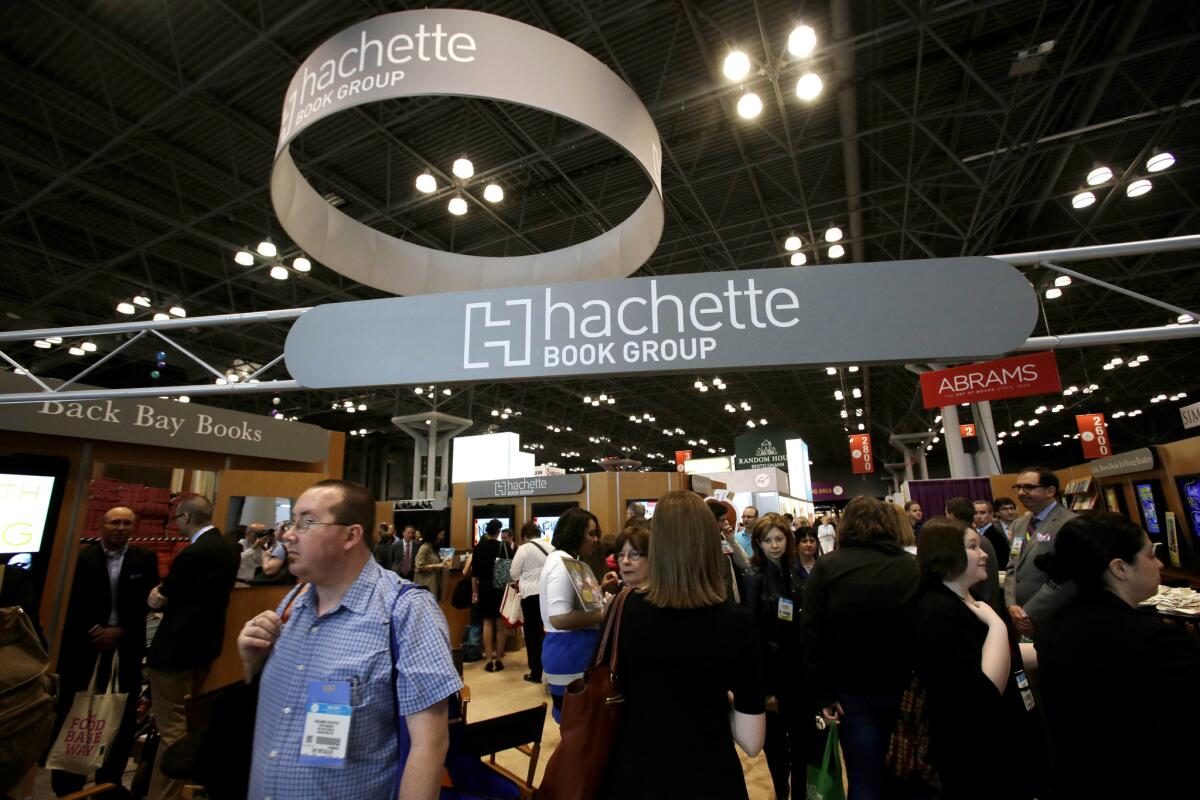Hachette buys Perseus as Amazon dispute bites J.K. Rowling

Hachette, one of the “big five” companies in publishing, announced Tuesday that it will acquire the sixth-largest publisher, Perseus Books Group. Industry observers suggest the consolidation will bolster Hachette’s position in its ongoing dispute with Amazon.
In May, Amazon began making it difficult for shoppers to puchase Hachette’s books on its site. Some didn’t come up in search, others were subject to artificial, weeks-long shipping delays, and the pre-order option was removed from many popular books, including the mystery “The Silkworm” by Robert Galbraith, aka J.K. Rowling.
Amazon has not commented on the dispute but it has acknowledged that the changes are related to business negotiations with Hachette.
Amazon controls about a third of the bookselling market, and has an even larger share when it comes to e-books. The effects of its aggressive moves toward Hachette are starting to show, particularly in the case of J.K. Rowling’s new book.
The novel “The Silkworm” didn’t make the e-book bestseller list this week at Digital Book World, the first time it might have appeared there; the Rowling/Galbraith mystery clocked in at an aneamic No. 30. But after DBW pulled Kindle sales from its tallies -- all the e-books sold by Amazon -- “The Silkworm” landed at No. 6.
Hachette’s purchase of Perseus had nothing to do with the Amazon dispute, CEO Michael Pietsch told the New York Times, saying it was part of the company’s “strategic long-term plan to grow in the U.S. market.” However, industry observers have concluded it will undeniably give Hachette more bargaining power.
More power comes from more books. Perseus’ imprints publish about 700 books per year, and there is a backlist of another 6,000 titles. Perseus is strong in nonfiction, where Hachette was not; its imprints include PublicAffairs, Basic Books, Avalon Books and Da Capo Press.
Having more books for leverage against Amazon is thought to be a major reason for the merger between Random House, the world’s biggest publisher, and Penguin, another of the (then) big six. The massive new Penguin Random House is acknowledged to have the greatest bargaining power with Amazon.
Amazon and publishers are soon to be individually renegotiating terms, with a particular area of contention thought to be around e-book sales. Amazon’s first contract renegotiations were with Hachette.
Book news and more: follow @paperhaus on Twitter
More to Read
Sign up for our Book Club newsletter
Get the latest news, events and more from the Los Angeles Times Book Club, and help us get L.A. reading and talking.
You may occasionally receive promotional content from the Los Angeles Times.







